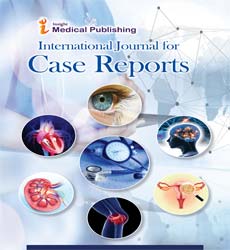SEVERE HYPOTHERMIA, with prolonged Cardiac Arrest and successful rewarming and recovery utilizing Cardiopulmonary Bypass (Knop,G.)
Abstract
Severe accidental hypothermia is a serious condition with a core body temperature below 30 degrees Centigrade, implicating an extremely high mortality rate of more than 80%. The most common cause is an exposure to cold water or air. A hypothermic body in cardiac arrest (CA), must not be considered “dead” until “rewarmed and dead Under this principle, it is strongly advised to proceed with Cardiopulmonary resuscitation (CPR) when a person is found in that extreme condition, and NOT give up till the core temperature reaches levels of 33 to 35 degrees. There are several reports of cases with complete neurological recovery after prolonged immersion in cold water in circumstances in which asphyxia did not preceded the circulatory arrest. With immediate referrals of these patients to a General Hospitals, the main barrier to success is the lack of availability of a Team to proceed with immediate Cardiopulmonary (CP) by-pass and rewarming, reflecting the main reason of suspension of resuscitation efforts before reaching complete rewarming. There are reports of negative prognostic factors for successful recovery at arrival to Hospital, like pH levels below 6.5, K above 9 mmol/L, and ACT above 400 seconds. On these cases, the cardiac arrest may have preceded hypothermia. We have achieved successful outcomes in a few patients, and particularly I can highlight a case of a 63-year-old lady found outdoors in CA for approximately 48 hours, with average temperature of 10 degrees. She was assisted with CPR and endotracheal intubation immediately on site and transferred to Hospital on CPR in the ambulance for 2 hours. A Lucas device was instrumented on her at arrival to the Emergency room. Immediately after being transferred to Cardiac Surgery theatre, I proceeded to femoral arterio-venous (AV) cannulation and rewarming. The heart was fibrillated initially and recovered sinus rhythm and good contractility on rewarming under trans-oesophageal surveillance, although on high noradrenaline support. After treating severe coagulation derangements, she could be weaned successfully from CP bypass, although acidotic, resulting in a full neurological recovery and prompt extubation in a few hours after surgery. The patient was discharged from hospital after 9 days. The main complication was rhabdomyolysis that responded well to treatment. As a summary, Severe accidental hypothermia is a highly lethal condition, that can be successfully treated in some cases with immediate referral to a Cardiac Surgical Unit..
Open Access Journals
- Aquaculture & Veterinary Science
- Chemistry & Chemical Sciences
- Clinical Sciences
- Engineering
- General Science
- Genetics & Molecular Biology
- Health Care & Nursing
- Immunology & Microbiology
- Materials Science
- Mathematics & Physics
- Medical Sciences
- Neurology & Psychiatry
- Oncology & Cancer Science
- Pharmaceutical Sciences
